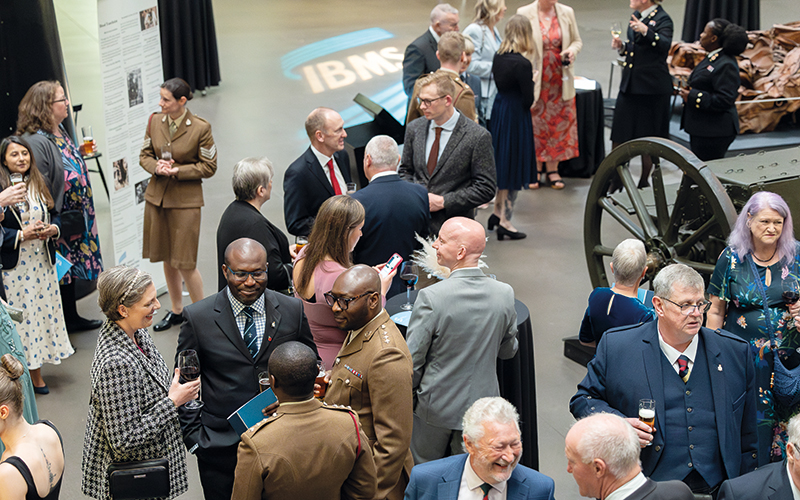We hear from a special event the IBMS held at the Imperial War Museum on 6 June.

About 100 IBMS members attended a special event on Biomedical Science Day to mark D-Day, which was on the same day. Serving members, reserves and veterans attended the evening, which was held at the Imperial War Museum (IWM) in London.
There were a number of historical talks to mark the occasion and the event was opened with a speech from IBMS President Joanna Andrew.
“In every major international conflict that involves the deployment of British military personnel, biomedical scientists are part of the deployed force,” she said. “In recent years military biomedical scientists have been deployed overseas in the Falklands war, the two gulf wars, and Afghanistan.
“Your service is especially valued, and we thank you for your ongoing contributions to both healthcare and our nation”
“I am incredibly proud of the work our profession does, and I am honoured to represent such a talented and dedicated group of individuals. To our military biomedical scientists and veterans, your service is especially valued, and we thank you for your ongoing contributions to both healthcare and our nation.”
Her introduction was followed by three talks: Brian Nation, Chair of the IBMS History Committee, discussed the role of the committee; Professor Mike Wren, IBMS Honorary Librarian, charted the role of antibiotics in the Second World War; the talks closed with Lt Col (Retd) Gary Fitchett discussing the impact that dried plasma had on the front line.
Brian Nation said: “Biomedical Science Day on 6 June was a unique opportunity to highlight the vital role that IBMS members play in modern healthcare, while at the same time honouring the sacrifice paid by many at the beginning of Operation Overlord on the same day in 1944 and subsequently.
“Members of the IBMS History Committee were pleased to support the event, which showcased developments that resulted in a considerable contribution to pathology and the health of those involved in conflict, together with the giants of laboratory medicine who played pivotal roles.”
Mike Wren added: “The event went extremely well. The IWM was an ideal place for the event being held on D-Day. The IBMS organised the event superbly and it was good to meet IBMS members who were part of the armed forces.
“It was important to remember and celebrate D-Day and it was fortuitous that Biomedical Science Day fell on the same day. It was a good opportunity to recognise our biomedical scientists and trainees in the forces at the same time.”
